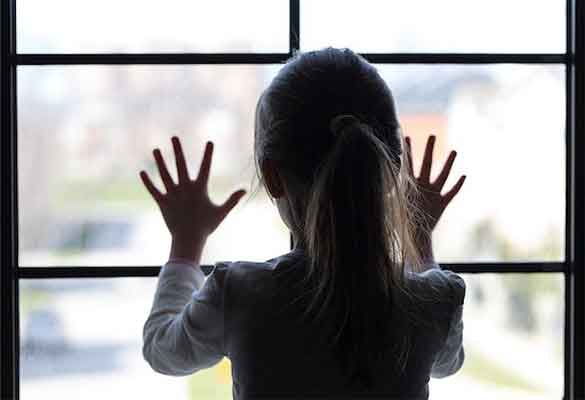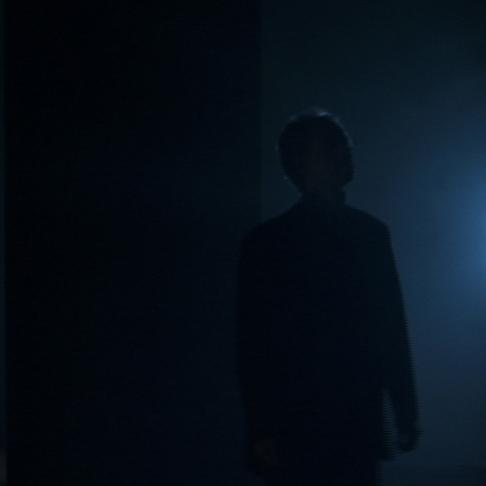Over 40 years ago, in my early 20’s, I looked at the way things were going in the culture and with man’s destruction of the planet, and decided I didn’t want to have children. Being right is no solace.
The question of whether to have children is different for a woman however, since women have a deep, almost instinctual need for childbearing. So my partner and I tried to have a child in our 30’s.
After three miscarriages, she said, ‘That’s it.’ As we’ve grown older, my family, like the vast majority of people in this godforsaken land, treats us like we have less value and worth because we don’t have children.
Therefore I found Roy Scranton’s op-ed in the New York Times, “Raising My Child in a Doomed World” a difficult, disturbing read.
He’s an English professor (at Notre Dame no less) that attempts to square his nihilistic worldview with having a child. He’s a misanthrope who attempts to rationalize his decision to have a child in a world he has made his reputation in by writing books like, “We’re Doomed. Now What?”
 Nihilists presently hold sway in academia, media and politics. Donald Trump is the ultimate nihilist on the right, but he has subconscious support and strange bedfellows with many on the left.
Nihilists presently hold sway in academia, media and politics. Donald Trump is the ultimate nihilist on the right, but he has subconscious support and strange bedfellows with many on the left.
So is it “already too late,” as Scranton and his intellectual brethren believe and preach? Or can humans stop moving in the direction of self-centeredness, division, conflict and fragmentation?
Scranton takes self-centeredness as a given and tries to make a virtue out of it by saying, “I’m committed to life in this world because it is the one my colleagues and students, my friends and family, my partner and I live in.”
Having a child because one loves life and loves one’s partner, rather than out of a need to be a respectable part of society, or as insurance against old age, one contributes to the future of humanity.
But the notion we “give up any deep connection to the future” by not having children, and that “procreation alone makes possible the persistence of human culture through time” is hogwash.
Scranton’s screed is dressed up as “committing to living ethically in a broken world.” While he gives an accurate portrayal of the challenges we face as human beings in the present world, his philosophy is dreadful and his spirituality is malignant. The author reaches a new misanthropic low when he says, “If you really want to save the planet, you should die.”
This isn’t some isolated academic’s dark dream, since Scranton was given twice the usual space for an op-ed in the NYT to convey a prevailing view of educated elites in America, expanding on a frequent theme in the “nation’s newspaper of record.”
To say “it’s already too late” is a psychological device that overwrought intellectuals have used for 20 years to make themselves emotionally comfortable while separatively saying, “The challenge we face today is the greatest the human species has ever confronted.”
It cunningly removes adherents from the painful necessity of spiritually, emotionally and intellectually grappling with intellectually unanswerable questions regarding human existence, questions that can only be resolved by insight, understanding and radical change. It closes out questioning and makes a career out of writing books like, “We’re Doomed. Now What?”
In addition, as America and the world plunge toward authoritarianism, such self-serving bullshit amounts to voter suppression. After all, if “we’re doomed,” why vote?
There are other gems in Scranton’s piece, such as: “living in the only world there is means giving up any claims to innocence or moral purity, since to live at all means to cause suffering.” Twaddle.
Because the verdict isn’t in on our age, much less humankind, such intellectuals, which are more common than you might think, are fully complicit in spreading darkness and despair in human consciousness.
It isn’t that thinkers and writers need to provide hope, much less rose-colored glasses for the masses, but that we have to maintain the psychologically uncomfortable attitude of “I don’t know,” rather than the “I know” that Scranton and his ilk evince.
It’s true that to “stop emitting waste carbon within the next five or 10 years, we need to radically reorient human economic production,” but it is an absurd non-sequitur to say in the next breath that “it would demand “centralized control” and that “unified action on a global scale is mere whimsy.”
Scranton obsessively focuses on the outer while ignoring the inner sources of humankind’s destructiveness and disorder, on “structures” and “recursive dynamics” rather than on human beings and human consciousness.
We have no idea how close or how far humanity is from having enough human beings with the capacity to change the course of humankind.
Therefore self-appointed Delphic Oracles who say, “We’re doomed” are not just exhibiting defeatism and nihilism; they are betraying their own children and the future of humanity.
Martin LeFevre
Link: https://www.nytimes.com/2018/07/16/opinion/climate-change-parenting.html

